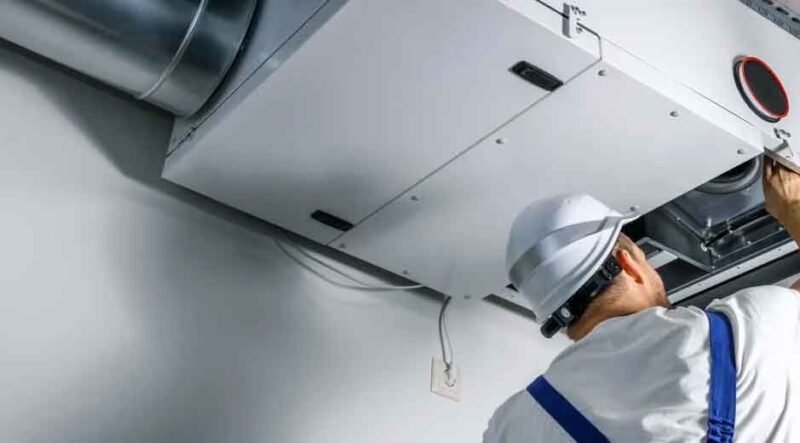HVAC systems offer homeowners control over their indoor temperatures year-round. These systems function optimally when they are installed properly and receive routine maintenance, notes Fireside Management Gilroy team. Hiring a professional HVAC team for your home’s cooling and heating system installation helps you confirm the unit is the right size and type for your needs. Here are some key factors to assess before installing an HVAC system:
Home Qualities
A bigger home requires a larger HVAC unit, and some homes need more than one unit to keep the interiors comfortable. HVAC technicians will assess the square footage of your home and the existing ductwork to determine the appropriate unit size for your home. Other home-related factors that affect the unit size include your home’s insulation and the local climate. If your home has sufficient insulation, it will be able to maintain a consistent indoor temperature with less energy usage. This means a smaller unit may be able to meet the heating and cooling needs of a larger home. A home located in a more extreme climate may need a larger or more powerful unit to meet heating needs.
Energy Efficiency
Some heating systems are designed to be energy efficient, and meeting with an HVAC technician will help you find units that allow you to save money on utility bills and avoid excessive energy consumption. If your home has an upgraded electrical system, it may support a smart HVAC model with automated features. Some smart features include remote access, scheduled heating, and temperature zoning. Remote access allows you to control your thermostat with an app on your phone. Scheduled heating and cooling help you save energy and money by running your HVAC system only when you’re at home. Temperature zoning features allow you to adjust temperatures in specific areas of your home to avoid overworking the entire system.
Heating system installation teams may recommend integrating your unit with a smart thermostat to give you greater control over how and when you heat or cool your home. They’ll also recommend units with performance ratings that match your energy needs and conservation goals. Technicians will confirm that new units are compliant with current energy standards to protect your home from energy surges and potential connectivity issues.
Air Flow
Before installing a new heating system, HVAC technicians will inspect air vents, filters, and ducts to make sure air can move freely throughout your home. If they identify faulty vents, dirty filters, or obstructions in the ducts, they will clean the components, replace filters, and remove blockages to restore air flow. Confirming the system produces sufficient air flow after installation helps prevent hot or cold spots in your home. If you notice reduced air flow in specific rooms, an HVAC technician will inspect duct connections to make sure air is moving through the system effectively. They also check the thermostat’s connection to the unit’s ignition to confirm proper air flow. Scheduling future filter changes and duct cleanings allows your new heating system to operate functionally.
Installation Site
Assessing where to place an HVAC unit prior to installation allows technicians to find a location that is near utility connections and away from hazards. Proper placement makes attaching new units to power sources and existing ductwork and drain lines easier. HVAC technicians will confirm the new unit is compatible with the gas and power sources available on your property. Some fuel sources that heating and cooling systems are compatible with include electricity, natural gas, and propane. If you have a preferred fuel type, discuss your preferences with your HVAC technician and local utility company to make sure your property can support a new unit.
They will also look for an installation site that is located away from foliage, vehicle storage, and potentially flammable materials. This protects your heating system and home from damage and promotes good air quality and flow. After a heating system installation service, check the area around your HVAC unit regularly for debris. Removing materials that could block air flow or create hazardous conditions allows your system to operate safely.
Schedule a Heating System Installation Service
HVAC professionals will assess your home’s size and energy consumption to recommend appropriate heating and cooling systems. They also offer maintenance services after installation to make sure your system is safe and functional. If you need a heating system installation service, schedule it before the cold season to make sure your home remains comfortable. Contact an installation team today to schedule an HVAC unit replacement or repair service.








